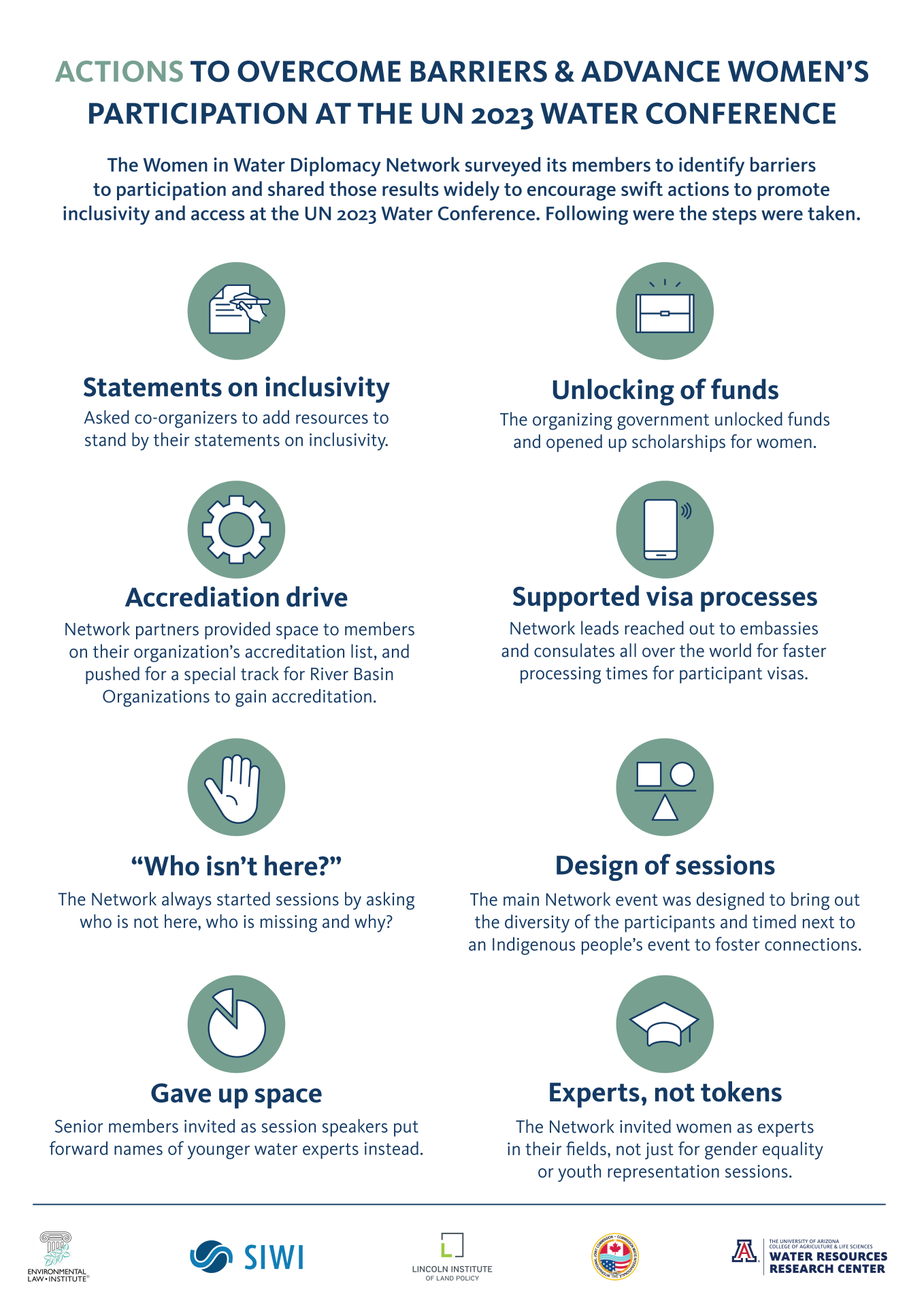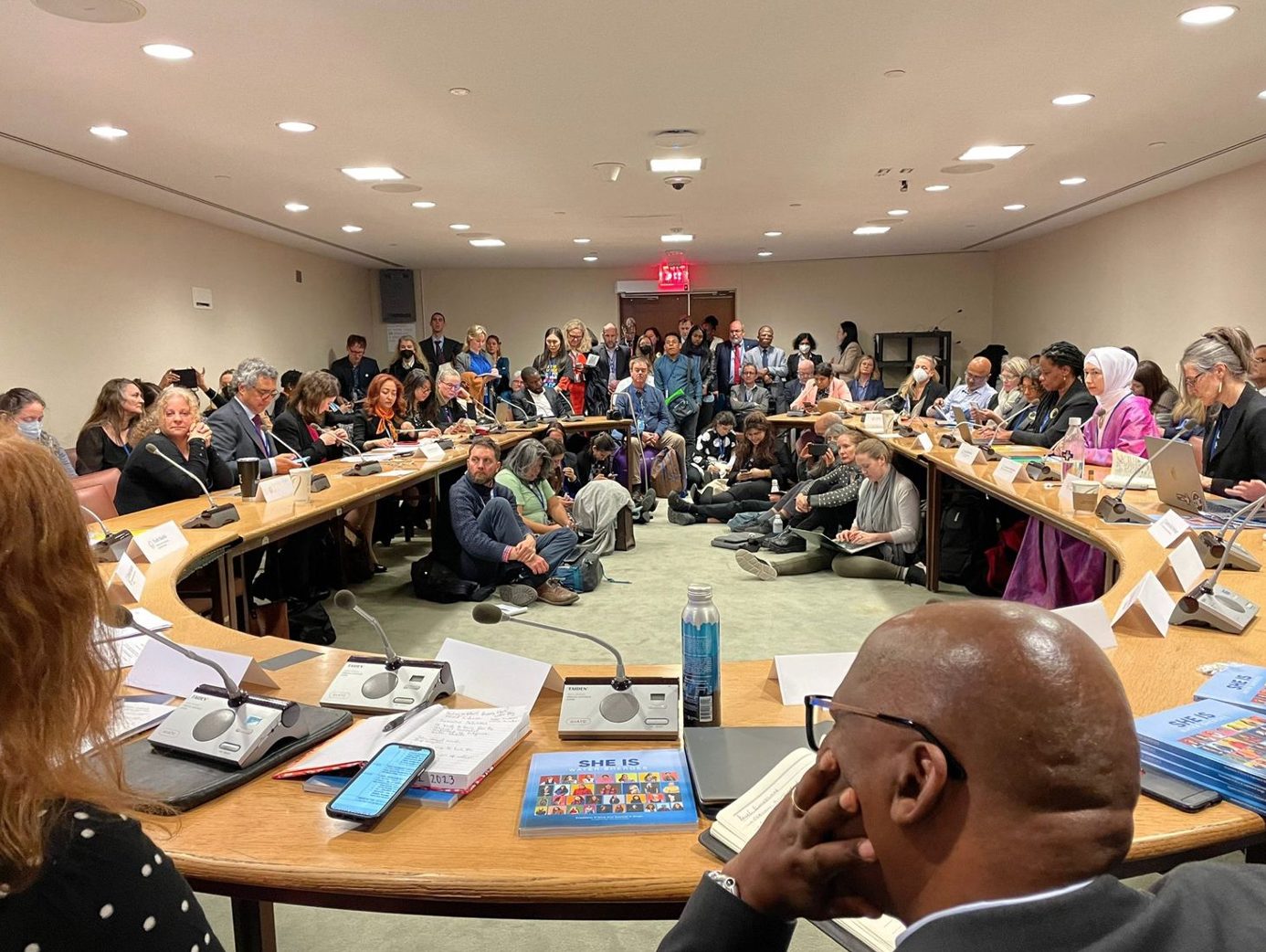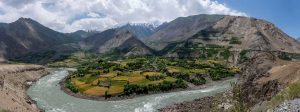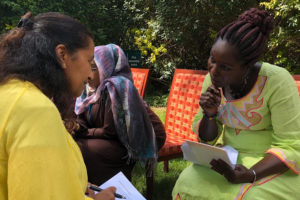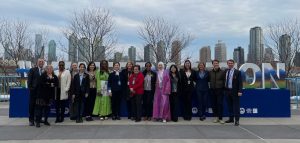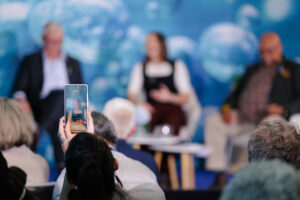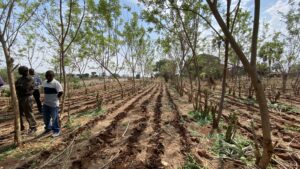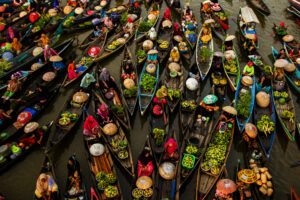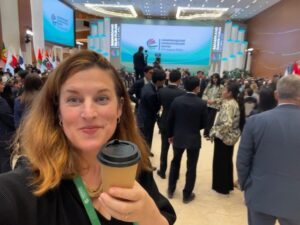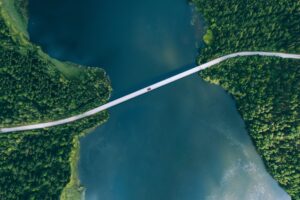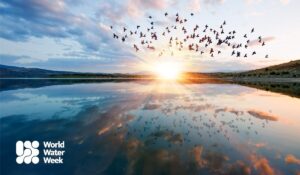The Road to the UN Water Conference – paved with good intentions and persistent barriers
Article abstracted from Koch, Elizabeth and Ekta Patel, et al. 2023. Women in Water Diplomacy Network After Action Report: The Water Diplomacy Symposium and Network Engagement in the 2023 UN Water Conference.
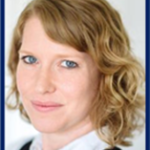

In advance of the UN Water Conference the Women in Water Diplomacy Network invested considerable time and efforts in addressing the many barriers faced by Network members and supporters in participating at the UN Water Conference itself. The Network hosted an online Accreditation Q&A session for Network Members seeking accreditation to participate in-person at the UN Water Conference on November 16, 2022. This event featured several representatives closely aligned with UN Water Conference planning processes including a detailed presentation on participation processes from Josh Newton, as well as inputs from Ambassador Tanja Miškova, Ministry of Foreign Affairs and Ambassador-at-Large for Water Diplomacy, Slovenia. This online information session was attended by dozens of Network members as well as representatives from Indigenous communities from around the world who were able to learn more about the process and have their questions informally answered by knowledge sources involved in the UN Water Conference.
To further support Network members and supporters to receive accreditation Network Process Support partner institutions including the Environmental Law Institute, the Environmental Peacebuilding Association and the University of Arizona Water Resources Research Center provided support and space on their institutional accreditation lists for Women in Water Diplomacy Network members and supporters seeking to participate in-person at the UN Water Conference. These efforts demonstrated the strong institutional commitments to actively expanding the diversity of voices present and available to directly share their insights at the UN Water Conference.
In January-February the Women in Water Diplomacy Network shifted focus from supporting Network member accreditation to ensuring strong Network representation in the official program of the UN Water Conference. Specifically, this included the preparation and submission of an official on-site side event application, as well an official Voluntary Commitment to the UN Water Action Decade on behalf of the Network and its growing partners. From more than a thousand side event applications submitted, the Women in Water Diplomacy Network’s was selected to host an on-site side event on the afternoon of the opening day of the UN Water Conference – World Water Day. The Network’s Voluntary Commitment – based on the Global Joint Statement released by the Network as part of its 2022 Global Strategy – was accepted and included in the UN’s registry of commitments on February 21, 2022 and is available here. The Network was grateful for the strong support from a broad consortia of partners who partnered with the Women in Water Diplomacy Network in the side event and Voluntary Commitment submissions including: the Red Dot Foundation, the Zambezi Watercourse Commission (ZAMCOM), the Orange Senqu River Commission (ORASECOM); the Okavango Basin Commission (OKACOM); the International Joint Commission (IJC); the Environmental Law Institute (ELI), the Stockholm International Water Institute (SIWI), UNDP Cap-Net; UNESCO International Centre for Water Cooperation (ICWC); Central Asia Regional Environmental Center (CAREC); the Organization for Security and Cooperation in Europe (OSCE), the World Bank Equal Aqua, The Environmental Peacebuilding Association (EnPax); the Sudanese Youth for Water Parliament; the Community of Women in Water – Latin America; Women Plus Water at the University of Saskatchewan; IHE Delft; the Lincoln Institute of Land Policy; The University of Arizona Water Resources Research Center, and the Global Diplomacy Lab Secretariat at the Federal Foreign Office of Germany.
During this preparation stage the Women in Water Diplomacy Network also welcomed new partners who joined the shared effort to co-convene the March 21, 2023 Water Diplomacy Symposium. The Environmental Law Institute and the Stockholm International Water Institute welcomed the University of Arizona Water Resources Research Center, led by Dr Sharon Megdal, the Lincoln Institute of Land Policy, led by Faith Sternlieb, and the International Joint Commission led by Kathey Lee-Galvin and Susan Daniels – all of which contributed time and institutional resources to ensure the Water Diplomacy Symposium’s success. The Women in Water Diplomacy Network was also grateful to the Scandinavian House venue in New York City, which afforded the Network an excellent location and support for the Symposium at a reduced rate.
About the Network
The Women in Water Diplomacy and Water Management promotes promotes women water professionals’ participation in decision-making in the water sector and gender mainstreaming in water governance, inthe Nile region and Central Asia and Afghanistan.
The Women in Water Diplomacy network in the NileWomen in Water Management in Central Asia and AfghanistanA Path Forward for Women, Water, Peace, and Security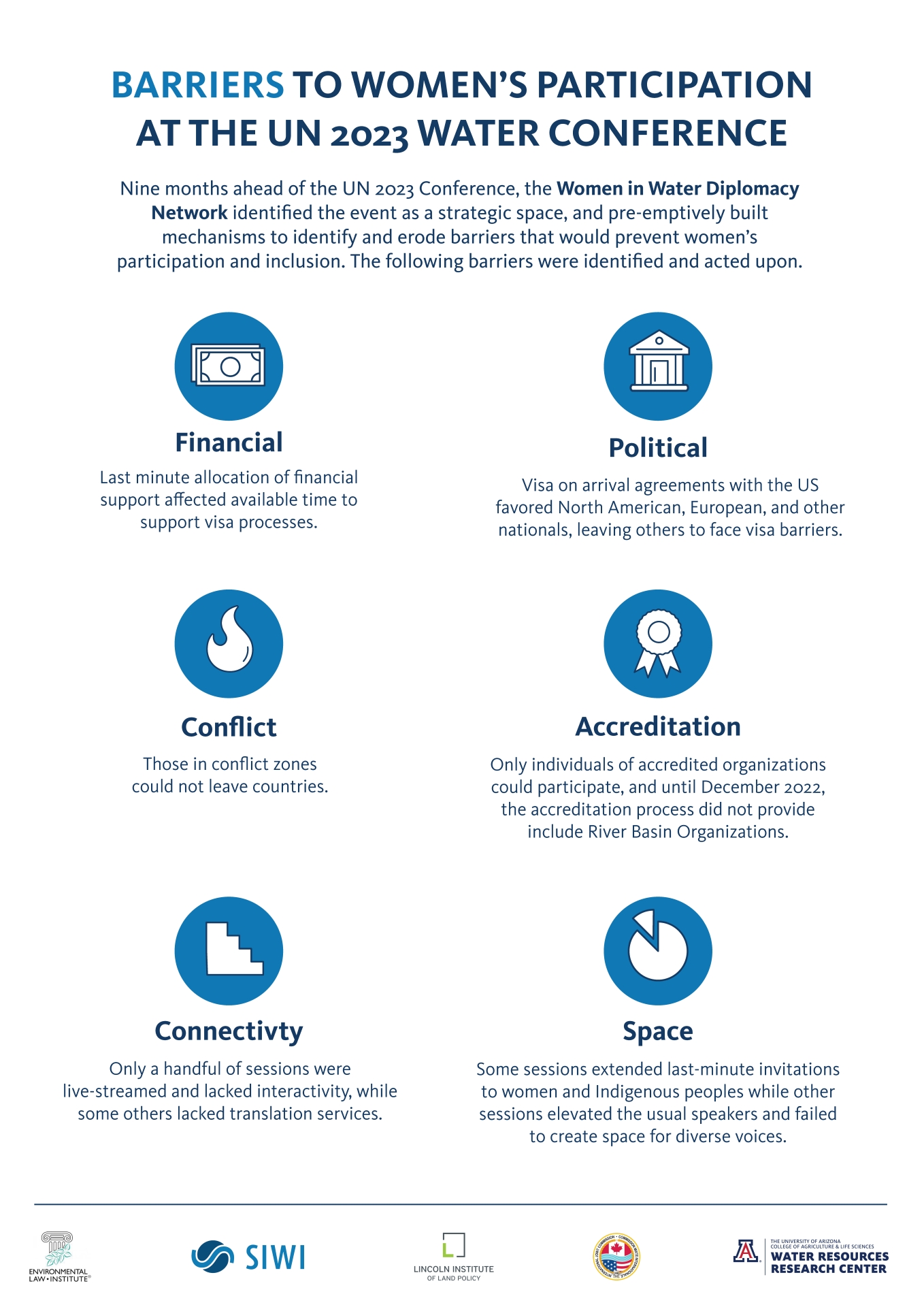
With accreditation applications submitted, the Symposium planning processes coming together and the official side event at the UN Conference secured, the Women in Water Diplomacy Network put additional focus on resource mobilization to provide travel grants to Network members and supporters, as well as dedicated support for participants to secure visas in a short period of time. The Women in Water Diplomacy Network was thrilled to be awarded a subsidy from the Netherlands Stakeholder Engagement Fund in the weeks in advance of the UN Water Conference. As co-host of the UN 2023 Water Conference, the government of The Netherlands emphasized the importance of inclusiveness in the preparatory activities on the road to the Water Conference and on a meaningful participation of all groups, also of those whose voices are usually not heard in UN Conferences. The government of The Netherlands acknowledged that targeted actions are needed to ensure that the needs and best practices of youth, women’s groups, Indigenous, and other grassroot groups, within and beyond the water sector, can be shared and will influence the results of the UN Water Conference and established the Stakeholder Engagement Fund to provide the targeted resources to back-up these objectives. The Environmental Law Institute was able to utilize the subsidy to provide travel grants, fill resource gaps, and produce materials to add value to the Women in Water Diplomacy Network’s participation at the UN Water Conference. Finally, in the days just prior to the UN Water Conference, the Women in Water Diplomacy Network hosted its annual online International Women’s Day online event which offered an opportunity to share updates on the Network’s engagement plans at the UN Water Conference while highlighting some of the particularly persistent participation barriers (predominately visa related) that the Network was unfortunately unable to overcome.
While the Network was able to bring a strong group of Members together in a collective effort to raise our shared objectives at the UN Water Conference, the extraordinary efforts demonstrated the resource commitment and political will, necessary to seriously improve inclusion at dialogue events like the UN Water Conference.
